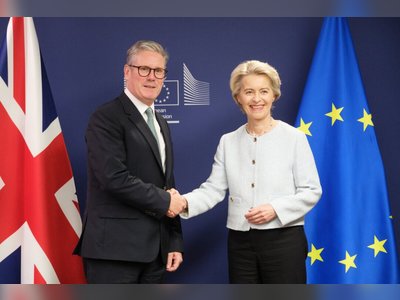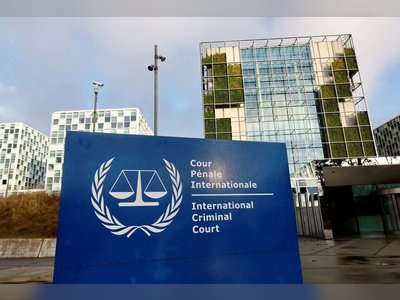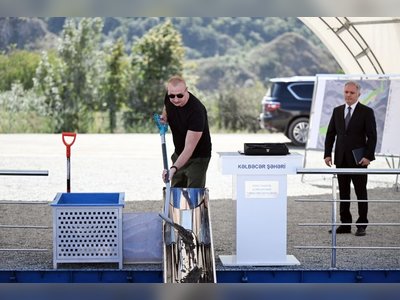European Parliament Launches Fifth Edition of Daphne Caruana Galizia Prize for Journalism
The annual prize aims to recognize outstanding journalism that supports European Union values.
On 21 May, the European Parliament initiated the call for submissions for the fifth edition of the Daphne Caruana Galizia Prize for Journalism, aimed at honoring exceptional work in journalism that promotes or defends foundational principles of the European Union, including human dignity, freedom, democracy, equality, rule of law, and human rights.
European Parliament President Roberta Metsola emphasized the significance of a free press as a cornerstone of democracy, asserting that journalists must operate without facing threats of censorship or intimidation.
Metsola noted that the Daphne Caruana Galizia Prize is a tribute to those who courageously uncover truth in challenging circumstances and reaffirmed the European Parliament's commitment to truth and press freedom.
The prize is open to professional journalists and teams of professional journalists from any nationality, provided their work has been published or broadcast by media outlets based in one of the 27 member states of the European Union.
The objective is to underline the vital role of professional journalism in protecting democratic values and human rights.
An independent jury consisting of press and civil society representatives from across the EU will evaluate submissions and select a winner.
The award ceremony is scheduled to take place annually around 16 October, the anniversary of Daphne Caruana Galizia's assassination.
The prize includes a monetary award of €20,000, reflecting the European Parliament's strong support for investigative journalism and the importance of safeguarding media independence.
In recent years, the Parliament has raised concerns regarding various challenges to media pluralism within the EU and beyond, as well as direct attacks on journalists.
The European Parliament has condemned all forms of media repression and has played a significant role in advocating for legislative measures, culminating in the European Media Freedom Act, ratified in March 2024, designed to protect journalist safety and independence.
Additionally, the EU's anti-SLAPP directive, approved in February 2024, aims to address malicious litigation intended to intimidate critical voices.
Entries for the prize can be submitted online via the designated website until midnight on 31 July 2025.
The prize has previously been awarded to notable projects including in 2021 the investigative work known as "The Pegasus Project;" in 2022, a documentary revealing the influence of Russia in the Central African Republic; in 2023, a joint investigation regarding the Pylos migrant boat shipwreck; and in 2024, an investigation focused on missing unaccompanied child migrants.
Daphne Caruana Galizia was a Maltese journalist and anti-corruption advocate known for her extensive reporting on corruption, money laundering, and the Maltese government's connections to the Panama Papers.
Following persistent harassment and threats, she was assassinated in a car bomb explosion on 16 October 2017. Her murder prompted widespread public outcry and criticism regarding the authorities' investigation, leading to a political crisis in Malta, including the resignation of Prime Minister Joseph Muscat.
Members of the European Parliament have called on the European Commission to address the failings related to the investigation since 2019.
European Parliament President Roberta Metsola emphasized the significance of a free press as a cornerstone of democracy, asserting that journalists must operate without facing threats of censorship or intimidation.
Metsola noted that the Daphne Caruana Galizia Prize is a tribute to those who courageously uncover truth in challenging circumstances and reaffirmed the European Parliament's commitment to truth and press freedom.
The prize is open to professional journalists and teams of professional journalists from any nationality, provided their work has been published or broadcast by media outlets based in one of the 27 member states of the European Union.
The objective is to underline the vital role of professional journalism in protecting democratic values and human rights.
An independent jury consisting of press and civil society representatives from across the EU will evaluate submissions and select a winner.
The award ceremony is scheduled to take place annually around 16 October, the anniversary of Daphne Caruana Galizia's assassination.
The prize includes a monetary award of €20,000, reflecting the European Parliament's strong support for investigative journalism and the importance of safeguarding media independence.
In recent years, the Parliament has raised concerns regarding various challenges to media pluralism within the EU and beyond, as well as direct attacks on journalists.
The European Parliament has condemned all forms of media repression and has played a significant role in advocating for legislative measures, culminating in the European Media Freedom Act, ratified in March 2024, designed to protect journalist safety and independence.
Additionally, the EU's anti-SLAPP directive, approved in February 2024, aims to address malicious litigation intended to intimidate critical voices.
Entries for the prize can be submitted online via the designated website until midnight on 31 July 2025.
The prize has previously been awarded to notable projects including in 2021 the investigative work known as "The Pegasus Project;" in 2022, a documentary revealing the influence of Russia in the Central African Republic; in 2023, a joint investigation regarding the Pylos migrant boat shipwreck; and in 2024, an investigation focused on missing unaccompanied child migrants.
Daphne Caruana Galizia was a Maltese journalist and anti-corruption advocate known for her extensive reporting on corruption, money laundering, and the Maltese government's connections to the Panama Papers.
Following persistent harassment and threats, she was assassinated in a car bomb explosion on 16 October 2017. Her murder prompted widespread public outcry and criticism regarding the authorities' investigation, leading to a political crisis in Malta, including the resignation of Prime Minister Joseph Muscat.
Members of the European Parliament have called on the European Commission to address the failings related to the investigation since 2019.
AI Disclaimer: An advanced artificial intelligence (AI) system generated the content of this page on its own. This innovative technology conducts extensive research from a variety of reliable sources, performs rigorous fact-checking and verification, cleans up and balances biased or manipulated content, and presents a minimal factual summary that is just enough yet essential for you to function as an informed and educated citizen. Please keep in mind, however, that this system is an evolving technology, and as a result, the article may contain accidental inaccuracies or errors. We urge you to help us improve our site by reporting any inaccuracies you find using the "Contact Us" link at the bottom of this page. Your helpful feedback helps us improve our system and deliver more precise content. When you find an article of interest here, please look for the full and extensive coverage of this topic in traditional news sources, as they are written by professional journalists that we try to support, not replace. We appreciate your understanding and assistance.











